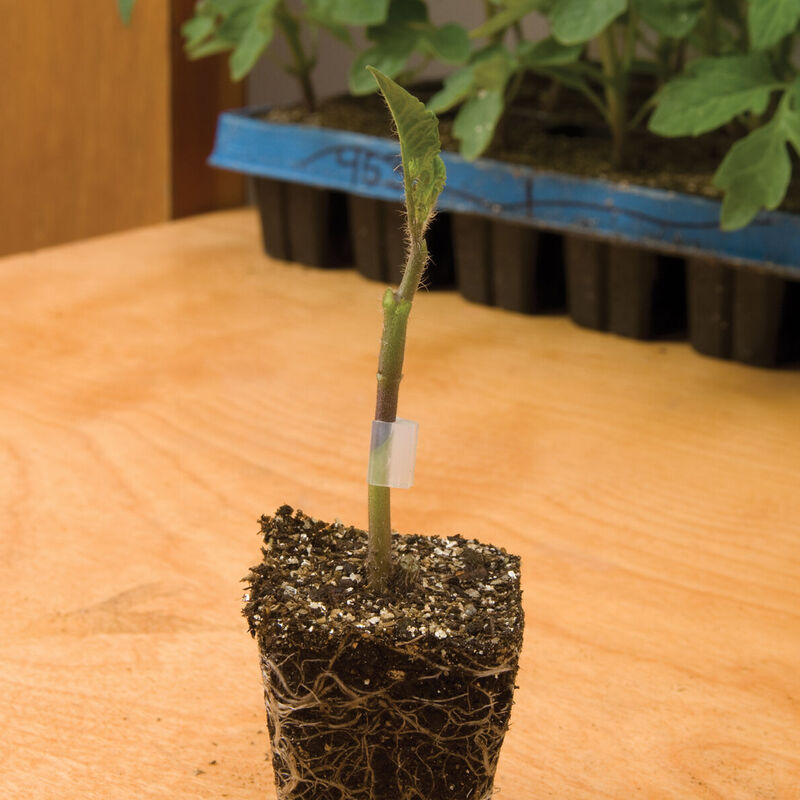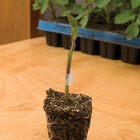Estamino (F1) Tomato Seed
Estamino (F1) Tomato Seed
Generative rootstock.
Estamino is a strong, generative rootstock that puts a high proportion of energy into fruit. Easier to balance than Maxifort. Especially useful for tomatoes in cultivation for less than six months, in unheated hoophouses, or with small-fruited (less than 100 gm) varieties. Also pairs well with Marnero, Margold, and Marbonne. For use as rootstock only.Disease Resistance:
Fusarium Crown and Root Rot (High)Fusarium Wilt races 1–3 (High)Specs:
- This product does not ship to the following countries: United Arab Emirates, Austria, Australia, Barbados, Belgium, Bulgaria, Bermuda, Bahamas, Switzerland, Cyprus, Czech Republic, Germany, Denmark, Estonia, Spain, Finland, France, United Kingdom, Greece, Hong Kong, Croatia, Hungary, Ireland, Iceland, Italy, Japan, Republic of Korea, Kuwait, Cayman Islands, Lithuania, Luxembourg, Latvia, Malta, Netherlands, Norway, New Zealand, Oman, Poland, Portugal, Qatar, Romania, Saudi Arabia, Sweden, Singapore, Slovenia, Slovakia, San Marino, Thailand, Trinidad and Tobago, Taiwan, Ukraine.
SCIENTIFIC NAME:
Solanum lycopersicumCULTURE:
For more information on grafting with rootstock tomatoes, please refer to one of our production guides: Top Grafting Tomatoes or Side Grafting Tomatoes. Maxifort rootstock can lead to uneven germination in some conditions; if grafting to Maxifort, see our Maxifort production guide for tips on mitigating this issue. After cotyledons (first leaves) have expanded, fertilize with a complete nutrient solution (EC 1.0, pH 5.8) or equivalent as needed to keep plants dark green and healthy; increase EC as plants grow. Once the grafted plants have healed, continue by growing and managing the plants as you would normally. Grow plants at 66-68°F (19-20°C) day and night temperature. When transplanting into the greenhouse, maintain 73-77°F (23-25°C) day and night temperature for a few days after transplanting to promote rapid vegetative growth and root establishment. Once fruit begins to set, lower night temperature to 62-66°F (17-19°C) and keep a daytime temperature of 68-72°F (20-22°C).DISEASES AND PESTS:
Regularly schedule releases of beneficial insects to control pests.TRANSPLANTS:
Avg. 950 plants/1,000 seeds.Johnny's is committed to your success, every step of the way.
We want you, our customer, to be 100% satisfied with all of our seeds, tools, and supplies.
If anything you purchase from us proves unsatisfactory, we will either replace the item or refund the purchase price.






